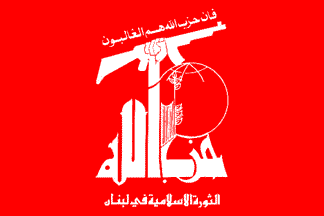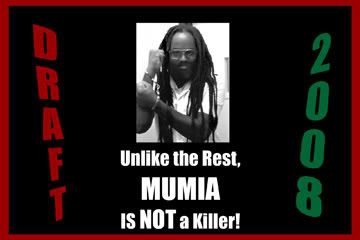In Spite of Zionist Massacres, Hizbullah Continues to Beat Back Invasion

In a combined report featuring input from various agencies along with Leila Hatoum and Mira Borji of The Daily Star, we read that the fighting in Southern Lebanon between Lebanese Resistance fighters and Apartheid Israel's land-grabber army continues.
Elsewhere, the Jerusalem Post reports today that "nine IDF soldiers [were] wounded during operations in the villages of Ataybeh and Al-Adisa, north of Metulla."
The news of fierce resistance in Taibeh, Ataybeh and Al-Adisa to more attempted Zionist incursions comes on the heels of the Zionist colony's retreat from Bint Jbeil after losing between nine and thirteen Special Forces land-grabbers - many coming from the elite Battalion 51 of the Golani Brigade.
One reason for these losses has to do with the Zionist land-grabbers admission that "Hezbollah has been able to tap into Israeli mobile phones and ground phones." Ma'an reports that the land-grabbers also:
Thanks to Resistance rocket attacks there, Zionist land-grabbers have retreated into bunkers or fled the North in massive numbers. Debka reports:
Apartheid Israel has no interest in such an arrangement.
They prefer instead to carpet-bomb all of Lebanon, destroying its means of prodcution while killing hundreds of civilians. Yet there is an irony to the fierceness of the Zionist assault: considering how much of Lebanon it has already destroyed, considering how badly things have gone for Apartheid Israel militarily, and considering the economic impact the fighting has had on the Zionist state, the likleyhood that Hizbullah would now agree to those same conditions now remains slim.
Heavy clashes broke out between Israel and Hizbullah Sunday in the border town of Taibeh, after an elite Israeli team attempted to sneak into the Lebanese territory. Hizbullah issued a statement saying the elite Israeli Army team named Goulani tried to sneak into the southern town of Taibeh, a few kilometers to the west of Fatima Gate, a sealed border crossing into Israel, but Hizbullah fighters fought them.AP adds to this report that Hizbullah destroyed at least one of Uncle Sam's tanks in the fighting.
"Hizbullah's fighters are still engaged in ferocious clashes with the Israeli military ... and have inflicted severe casualties among the Israeli military."
The Hizbullah statement said its militants had inflicted casualties on the Israeli forces.
"Our fighters are following the Israeli military elite team members from one place to another while the Israeli helicopters were not able to evacuate the wounded and casualties," it added...
An Israeli Army spokesman said Israeli troops were engaged in clashes with Hizbullah fighters for the first time in Adaysseh in southeastern Lebanon, which left four Israeli soldiers "lightly" wounded.
Elsewhere, the Jerusalem Post reports today that "nine IDF soldiers [were] wounded during operations in the villages of Ataybeh and Al-Adisa, north of Metulla."
The news of fierce resistance in Taibeh, Ataybeh and Al-Adisa to more attempted Zionist incursions comes on the heels of the Zionist colony's retreat from Bint Jbeil after losing between nine and thirteen Special Forces land-grabbers - many coming from the elite Battalion 51 of the Golani Brigade.
One reason for these losses has to do with the Zionist land-grabbers admission that "Hezbollah has been able to tap into Israeli mobile phones and ground phones." Ma'an reports that the land-grabbers also:
Added that they discovered a telephone wire-tapping station in Bint Jbail after they had heard distortions in their phone lines. They believe that Hezbollah was able to tap into their military communications and their field network.Apart from the toll Apartheid Israel's failing invasion of Lebanon military has produced - hundreds and hundreds of civilians dead, the destruction of Lebanon's means of production, and the naked exposure of Uncle Sam as supplier and funder of the Zionist blitzkrieg - the war has had an extensive economic cost the Jim Crow cities in the North of Apartheid Israel.
Thanks to Resistance rocket attacks there, Zionist land-grabbers have retreated into bunkers or fled the North in massive numbers. Debka reports:
"As the third week of the war begins, conditions in the shelters where about a million Israeli civilians are confined are deteriorating. People living in terror of the next rocket and unable to work are running out of food, money and medicines. Airlessness is unbearable in the hot summer days. In some shelters, the individual must make do with half a meter of space on a mattress.Late last week, the AFP ran a very detailed piece on how the Jim Crow port city of Haifa has been especially hard hit.
After 13 days of warfare, 85,000 business in northern Israel face ruin. Half a million trees and much of the wild vegetation have been destroyed."
Aside from the human toll, the economic cost to the Jewish state's industrial capital - home to chemical, oil and electronic enterprises - has been enormous. The rocket attacks have ground economic life here to a near complete halt.As has been the case since Apartheid Israel began the blitzkrieg on Lebanon, the war and all the suffering it has produced doesn't need to continue. It has had the diplomatic ability to end the violence by agreeing with Hizbullah to a prisoner exchange.
Haifa port, the Jewish state's second-largest, is closed. So is the railway line north of the city. And the university has appealed for donations for its students who will be unable to pay their tuition fees because they are not working.
"We don't yet know the full impact," says Neta Dori, a city spokeswoman. "We can't yet give exact numbers ... but we know that this is hard on small businesses. The petrochemical industry has also stopped functioning for at least the past 10 days. Only small sites that enjoy shelter have been able to open.
"This will cost millions" in losses, she adds.
According to a recent study by the Israeli Association of Manufacturers, just a third of enterprises in Israel's north are functioning normally. Thirty-five percent have closed completely and another 35 percent are not operating at full capacity. The conflict is costing Haifa 300-500 million shekels ($68-$113 million) per day, the study estimates.
The tourist industry in the coastal city has also taken a hit.
Haifa's hotels are usually fully booked at this time of year, but today's occupancy rate is a mere 60 percent - and most clients are the journalists who have converged on the city from around the world to cover the conflict. Commercial centers are shut, the streets are deserted and the rare businesses that remain open are counting only those clients who have vanished.
Apartheid Israel has no interest in such an arrangement.
They prefer instead to carpet-bomb all of Lebanon, destroying its means of prodcution while killing hundreds of civilians. Yet there is an irony to the fierceness of the Zionist assault: considering how much of Lebanon it has already destroyed, considering how badly things have gone for Apartheid Israel militarily, and considering the economic impact the fighting has had on the Zionist state, the likleyhood that Hizbullah would now agree to those same conditions now remains slim.







<< Home